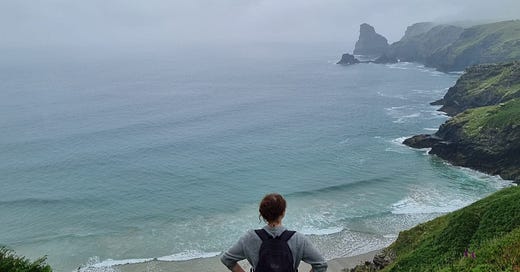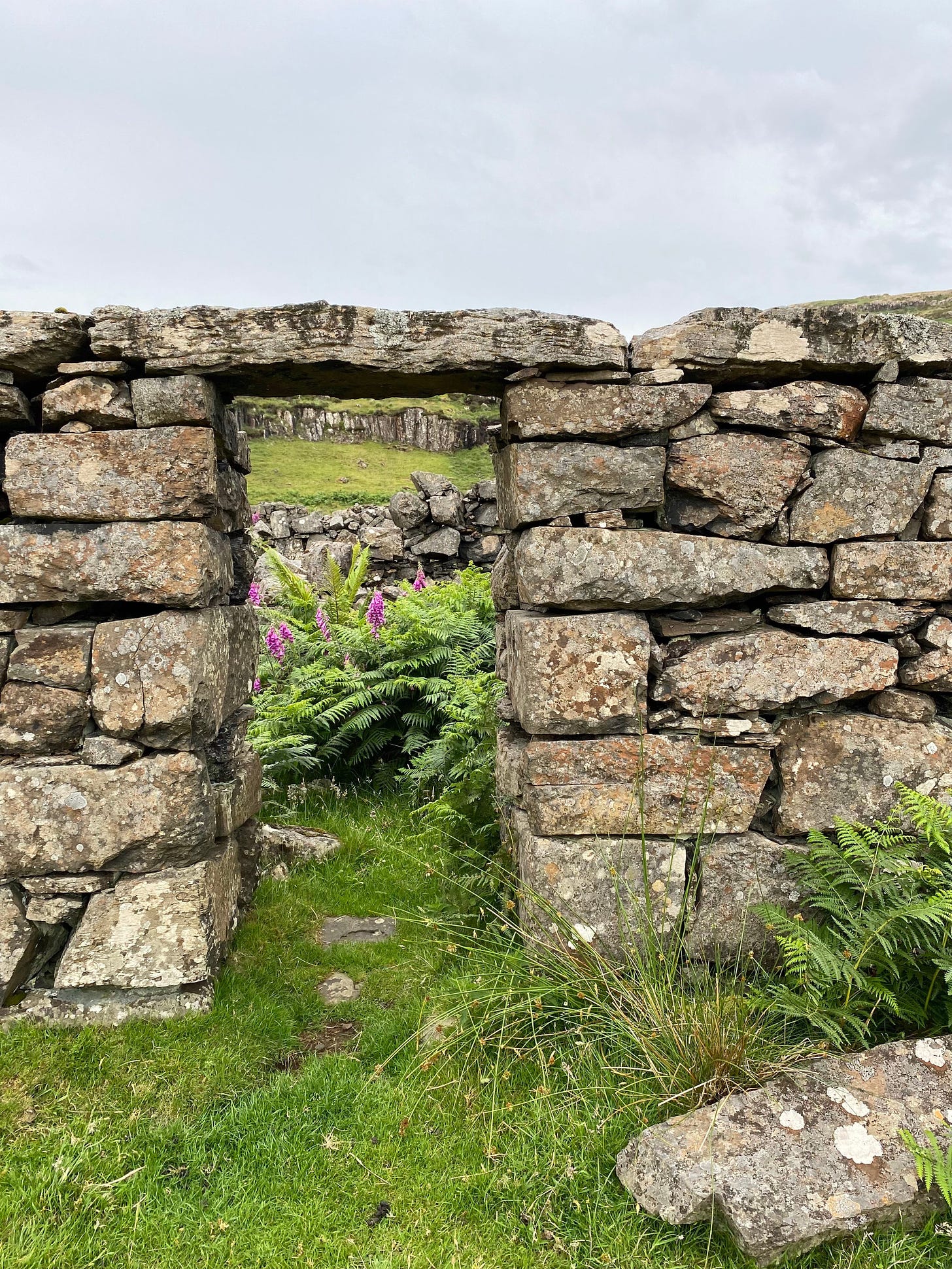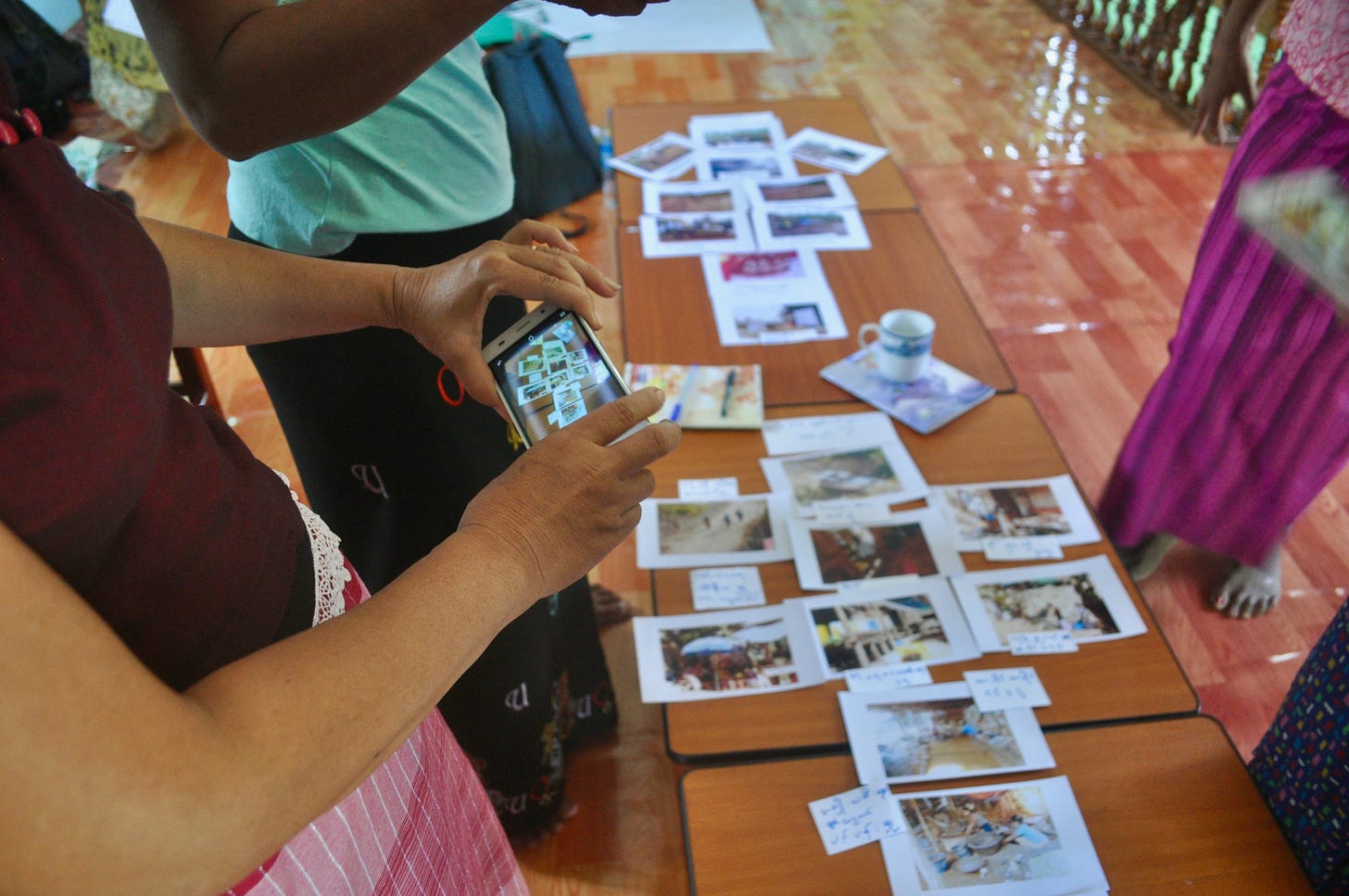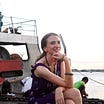Welcome to the second edition of a new feature here at Wild Quiet Folk!
Substack is an endless source of inspiration, a cacophony of unique voices that can lead a reader through the weird, wonderful and wild.
Here, I have collaborated with other creatives to bring you their meditations on place, story and wilderness - the heart of Wild Quiet Folk. This series is in an interview format, but offering creative prompts rather than questions - the freedom is with the contributor, to respond in whichever way they see fit, be that words, photos, drawings, anything that enlarges rather than restricts.
Our contributor this month is Catriona Knapman from Notes on Saving the World.
Thank you for being here, and I very much hope you enjoy the below:
The last walk you went on
Dubai Kite Beach.
A celebration of season
I celebrated this week that I have started to better notice the seasonal changes in Dubai when the sun hit me directly in the eyes as I walked into the metro station on the way to work.
Noticing the changing light meant that I was noticing the sun changing position in the sky. I used to feel like nature was very unchanging here. Now I am learning to watch for its more subtle signals.
The things in your pockets
This makes me think of a poem I wrote a while ago about what we carry around with us from place to place, so here is a part of it:
“I am still collecting the words I wasn’t taught to say
in dictionaries and classrooms, in adverts, on the back of tins.
I am storing them inside of fountain pens
waiting for days of ruptures and changes,
so I have vocabulary for new ends to sentences.
I am preparing for this.”
A place that feels wild to you
I spent two years in my early twenties working across the rural north of Nicaragua.
It was very different from Scotland where nature is conserved, contained and to some extent colonised. In Nicaragua, nature felt like it could take over.
Footpaths were cut before me through thick jungles by large men holding machetes. The hillsides loomed around the villages I visited, covered with rough vegetation and wild animals. I visited a lot of places which felt largely untouched by humans.
I had been brought up thinking that being in nature would be a calm, harmonious experience. But I always felt afraid when I stayed for a long time in rural Nicaragua. Not only in the unchartered paths, the gleaming machetes of the farmers or the creatures which worked their way through the gaps under the doors of my rooms and clattered across the corrugated iron roofs through the night. But in the respect it demanded. The laws were no longer my laws, justice was not my justice and as soon as night settled in, as soon as the bus left me there, I had to accept that I was completely at its mercy.
A moment of care
I visited Greece for the first time this year. It was off-season and half of the restaurants were shut. I didn’t mind. The water was clear and cold. I jumped in it several times a day. Everyone on the beach wandered around naked. I spent a long time staring at the sea. I went for runs. I cycled up hills. Drank wine and strong coffee. Ate salads and wandered. This felt like care. It felt feminine and natural and embodied.
A place that holds history, yours or others
This picture is of a village in Mull, where community was forced to move during the Highland Clearances. There are some very sad stories about what happened to the last people who called this home. When I walk there I feel a tangible sense of what Scotland lost from its culture through land grabbing and displacement. It is like walking through the historic impact of colonial and capitalist systems.
I used to work with communities in Myanmar whose land and culture were threatened in similar ways. That highlighted to me how similar our experiences are around the world. It also showed me how we simplify complex stories. Or we cast stories into the past when what happened to our ancestors, unhealed, we carry. And people are still being cleared from their homes today in other parts of the world. It is not something which just sits in a history book.
For me, this village in Mull holds all those stories – in reminds me of my country’s past as well as the stories of communities I worked with. Equally, my history feels like it is pulled between my childhood and my experiences working abroad as an adult – it caught up both in what Scotland lost through colonisation, as well as what Scotland took through colonisation.
A story you found in the land
In Myanmar, I found leading participatory photography work fascinating. I worked with groups of women farmers teaching them camera skills as a vehicle to talk about their lives. In other research projects, when women were asked about their land, they would often say they didn’t know anything. But once they had a camera and pictures to share they would narrate nuanced and intimate details about their natural environment. I loved learning their personal and collective stories of land, family and community. And I loved seeing how we can unlock stories which sit just beneath the surface by opening new entry points which allow less different voices to express themselves.
A small thing you learnt recently
When I was last back in Scotland, I walked around Blackford Hill in Edinburgh. It is a place - that given its urban setting – is rich with the wild and walking there always reminds me how little I know the plants around me, so I looked up some when I got home.
My favourite new learning was that in the past, Ragwort was the preferred vehicle for fairies to ride between islands in the Western Isles. I love to now think of them riding wild and free above the waves on tiny yellow aeroplanes.
Catriona Knapman is a writer and aid worker from Scotland. On Substack she writes ‘Notes from Saving the World’, a publication about travel, nature and being a woman, inspired by stories and lessons from twenty years living and working across four continents in the aid sector.












Thank you for inviting me along on this walk Bonnie. Your wonderful prompts offered such diverse jump-off points to explore memories and ideas from different moments in my life.
Love the idea behind this series - beautiful prompts Bonnie, and lovely to hear more from Catriona 🌿